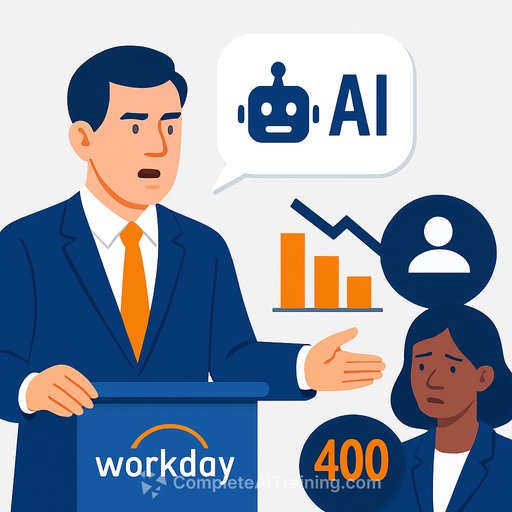Why Human Skills Are Still Key
As artificial intelligence reshapes the workplace, the focus often lands on automation, data, and efficiency. But what happens to leadership when so much can be automated? While machines speed up tasks and optimise processes, leadership remains a deeply human task. A spreadsheet can’t resolve team tensions, an algorithm can’t teach a new manager how to build trust, and a chatbot won’t sense when someone is quietly disengaged. That’s where effective leadership training for managers makes a real difference—beyond theory and into everyday work.
What Is Leadership Training, Really?
Leadership training goes beyond learning to delegate or run meetings. At its core, it helps people understand themselves and others better to build stronger, more connected teams. It supports managers to become clearer communicators, thoughtful decision-makers, and empathetic leaders. Some programmes focus on hard skills like budgeting, while others emphasise emotional intelligence and collaboration. The best balance both, equipping leaders to manage performance and people effectively. Well-designed training can spark cultural change, creating a ripple effect across teams and departments.
Why Is Leadership Training Important in an Organisation?
Leadership sets the tone. Whether leading a startup or a global team, how leaders communicate, respond to pressure, and support others affects morale and productivity. Studies show employees often leave managers, not companies. When teams feel unsupported or disconnected, engagement falls. Developing strong leadership skills is one of the most valuable investments an organisation can make. It promotes psychological safety, problem-solving, and innovation. Good leadership helps managers handle conflict constructively and keeps teams resilient through change.
AI Is Changing the Workplace, But Not the Need for Human Connection
AI processes data quickly, forecasts trends, and automates workflows. It’s reshaping roles and efficiency in many sectors. Yet, as machines take on more tasks, human leadership skills become even more crucial. How do you motivate a team unsettled by constant change? How do you handle ambiguity in hybrid work or diverse cultures? AI can provide data, but people interpret context, nuance, and emotion. Leadership training focused on human skills fills that gap.
What AI Can’t Teach a Leader
AI can surface insights, predict risks, and standardise tasks, supporting decision-making and operations. But it can’t teach integrity, empathy, or trust-building. It won’t guide managers through sensitive conversations or offer emotional support. These human skills can’t be downloaded. Leadership training helps develop emotional intelligence, enabling managers to respond with care, handle complexity, and stay grounded during uncertainty. In an AI-assisted environment, these are essential leadership qualities.
How Does Leadership Training Benefit Employees?
Leadership training isn’t just for senior roles. Everyone benefits when managers are confident, communicative, and fair. Leaders who give meaningful feedback, manage conflict calmly, and listen genuinely make employees feel seen and supported. This boosts engagement, collaboration, and performance. People want leaders who care about how work gets done, not just what gets done. Culture grows from behaviour, and leadership training that shifts behaviour impacts how people experience work—especially important when human interaction feels less frequent in AI-powered settings.
What Makes Leadership Training Effective?
Not all training drives change. Many focus on knowledge-sharing without encouraging behaviour shifts. To be effective, leadership training should:
- Be relevant to daily challenges
- Include self-reflection and emotional awareness
- Offer practice opportunities, not just theory
- Focus on connection rather than compliance
In-person workshops, immersive experiences, coaching, and peer discussions often outperform static e-learning or one-off seminars. The goal is to make learning memorable and actionable. AI can deliver content and simulate scenarios, but it can’t coach through real team dynamics or sense a manager’s fading confidence. That’s why training led by people who understand human nuance remains vital.
Why Leadership Training Fails
Training often fails due to lack of context. If content doesn’t reflect participants’ real work, it won’t stick. Without follow-up or chances to embed learning into routines, effects fade quickly. Another pitfall is focusing only on performance, ignoring human dynamics. Managers may learn to hit targets but not build trust or handle tough conversations, harming team culture. Effective training transforms assumptions, builds confidence, and changes how leaders see themselves and others. AI can identify gaps or trends but can’t increase self-awareness or improve human connection.
Is Leadership Training Worth It?
Yes—when done right. The return isn’t just in productivity or retention but in how people feel at work, how teams interact, and the culture that emerges. In a workplace with growing automation, human skills are essential. Emotional intelligence, active listening, creating space for others, and managing complexity with care define today’s leadership.
How to Train Leadership Skills That Last
Start with clear intent. Leadership development should address actual needs, not just checkboxes. Define what leadership your organisation values—is it directive or collaborative? Fast or reflective? Then design training that supports those values. Use practical exercises, real examples, and safe spaces to practise new behaviours. Involve teams in shaping leadership ideals so it becomes a shared commitment, not a mandate.
Leadership evolves with every conversation, challenge, and success. A manager may begin training unsure but leave with new confidence. That change spreads. As technology advances, the human side of leadership grows more important. Organisations that invest in leadership training focused on connection, not only skills, will thrive. Because even in an AI-driven world, people lead people.
Your membership also unlocks:





